Related Research Articles
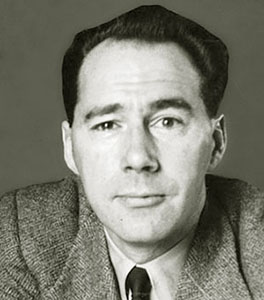
John Wyndham Parkes Lucas Beynon Harris was an English science fiction writer best known for his works published under the pen name John Wyndham, although he also used other combinations of his names, such as John Beynon and Lucas Parkes. Some of his works were set in post-apocalyptic landscapes. His best known works include The Day of the Triffids (1951), filmed in 1962, and The Midwich Cuckoos (1957), which was filmed in 1960 as Village of the Damned, in 1995 under the same title, and again in 2022 in Sky Max under its original title.

Michael John Moorcock is an English writer, particularly of science fiction and fantasy, who has published a number of well-received literary novels as well as comic thrillers, graphic novels and non-fiction. He has worked as an editor and is also a successful musician. He is best known for his novels about the character Elric of Melniboné, which were a seminal influence on the field of fantasy in the 1960s and 1970s.
Star Trek: Deep Space Nine (DS9) is an American science fiction television series created by Rick Berman and Michael Piller. The fourth series in the Star Trek media franchise, it originally aired in syndication from January 3, 1993, to June 2, 1999, spanning 176 episodes over seven seasons. Set in the 24th century, when Earth is part of a United Federation of Planets, its narrative is centered on the eponymous space station Deep Space Nine, located adjacent to a wormhole connecting Federation territory to the Gamma Quadrant on the far side of the Milky Way galaxy.
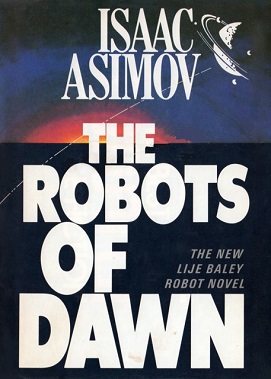
The Robot Series is a series of thirty-seven science fiction short stories and six novels created by American writer Isaac Asimov, from 1940 to 1995. The series is set in a world where sentient positronic robots serve a number of purposes in society. To ensure their loyalty, the Three Laws of Robotics are programmed into these robots, with the intent of preventing them from ever becoming a danger to humanity. Later, Asimov would merge the Robot series with his Foundation series.
The Galactic Empire series is a science fiction sequence of three of Isaac Asimov's earliest novels, and extended by one short story. They are connected by their early place in his published works and chronological placement within his overarching Foundation universe, set around the rise of Asimov's Galactic Empire, between the Robot and Foundation series to which they were linked in Asimov's later novels.
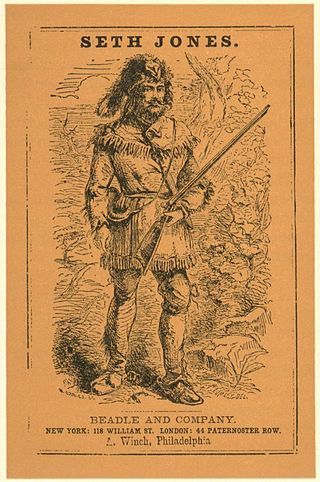
The dime novel is a form of late 19th-century and early 20th-century U.S. popular fiction issued in series of inexpensive paperbound editions. The term dime novel has been used as a catchall term for several different but related forms, referring to story papers, five- and ten-cent weeklies, "thick book" reprints, and sometimes early pulp magazines. The term was used as a title as late as 1940, in the short-lived pulp magazine Western Dime Novels. In the modern age, the term dime novel has been used to refer to quickly written, lurid potboilers, usually as a pejorative to describe a sensationalized but superficial literary work.
Stardust may refer to:

Alice Pleasance Hargreaves was an English woman who, in her childhood, was an acquaintance and photography subject of Lewis Carroll. One of the stories he told her during a boating trip became the classic 1865 children's novel Alice's Adventures in Wonderland. She shared her name with "Alice", the story's protagonist, but scholars disagree about the extent to which the character was based upon her.

The Colour of Magic is a 1983 fantasy comedy novel by Terry Pratchett, and is the first book of the Discworld series. The first printing of the British edition consisted of only 506 copies. Pratchett has described it as "an attempt to do for the classical fantasy universe what Blazing Saddles did for Westerns."
The Space Odyssey series is a series of science fiction novels by the writer Arthur C. Clarke. The first novel was developed concurrently with Stanley Kubrick's film version and published after the release of the film. The second was made into a feature film, released in 1984, respectively. Two of Clarke's early short stories have ties to the series.
In comics in the United States, a trade paperback is a collection of stories originally published in comic books, reprinted in book format, usually presenting either a complete miniseries, a story arc from a single title, or a series of stories with an arc or common theme.

The Virgin Missing Adventures were a series of novels from Virgin Publishing based on the British science-fiction television series Doctor Who, which had been cancelled in 1989, featuring stories set between televised episodes of the programme. The novels were published from 1994 to 1997, and featured the First through Sixth Doctors. The Missing Adventures complemented the Virgin New Adventures range, which had proved successful.

Oliver Hazard Perry La Farge II was an American writer and anthropologist. In 1925 he explored early Olmec sites in Mexico, and later studied additional sites in Central America and the American Southwest. In addition to more than 15 scholarly works, mostly about Native Americans, he wrote several novels, including the Pulitzer Prize-winning Laughing Boy (1929). La Farge also wrote and published short stories, in magazines such as The New Yorker and Esquire.
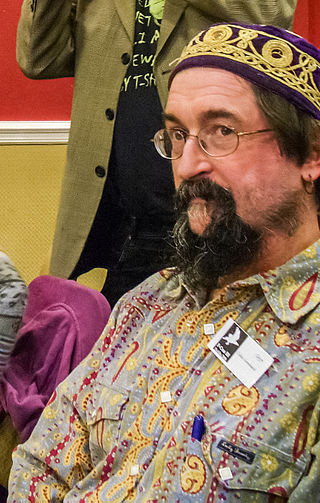
Colin Greenland is a British science fiction writer, whose first story won the second prize in a 1982 Faber & Faber competition. His best-known novel is Take Back Plenty (1990), winner of both major British science fiction awards, the 1990 British SF Association award and the 1991 Arthur C. Clarke Award, as well as being a nominee for the 1992 Philip K. Dick Award for the best original paperback published that year in the United States.
Gretel Ehrlich is an American travel writer, poet and essayist.
Many of the tropes of science fiction can be viewed as similar to the goals of transhumanism. Science fiction literature contains many positive depictions of technologically enhanced human life, occasionally set in utopian societies. However, science fiction's depictions of technologically enhanced humans or other posthuman beings frequently come with a cautionary twist. The more pessimistic scenarios include many dystopian tales of human bioengineering gone wrong.

Just After Sunset is the fifth collection of short stories by Stephen King. It was released in hardcover by Scribner on November 11, 2008, and features a holographic dust jacket. On February 6, 2008, the author's official website revealed the title of the collection to be Just Past Sunset. About a month later, the title was subtly changed to Just After Sunset. Previous titles mentioned in the media by Stephen King himself were Pocket Rockets and Unnatural Acts of Human Intercourse.
This is a list of notable literary works involving confidence tricks.

Take Back Plenty (1990), is a novel by British writer Colin Greenland, which won both major British science fiction awards, the 1990 British SF Association award and the 1991 Arthur C. Clarke Award, as well as being a nominee for the 1992 Philip K. Dick Award for the best original paperback published that year in the United States.
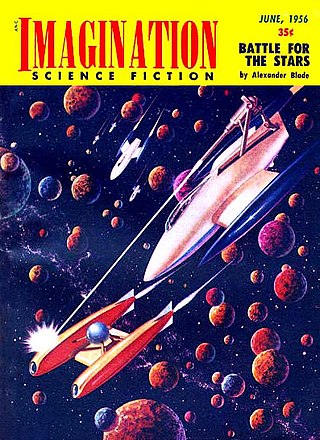
Space opera is a subgenre of science fiction that emphasizes space warfare, with use of melodramatic, risk-taking space adventures, relationships, and chivalric romance. Set mainly or entirely in outer space, it features technological and social advancements in faster-than-light travel, futuristic weapons, and sophisticated technology, on a backdrop of galactic empires and interstellar wars with fictional aliens, often in fictional galaxies. The term does not refer to opera music, but instead originally referred to the melodrama, scope, and formulaic stories of operas, much as used in "horse opera", a 1930s phrase for a clichéd and formulaic Western film, and "soap opera", a melodramatic domestic drama. Space operas emerged in the 1930s and continue to be produced in literature, film, comics, television, video games and board games.